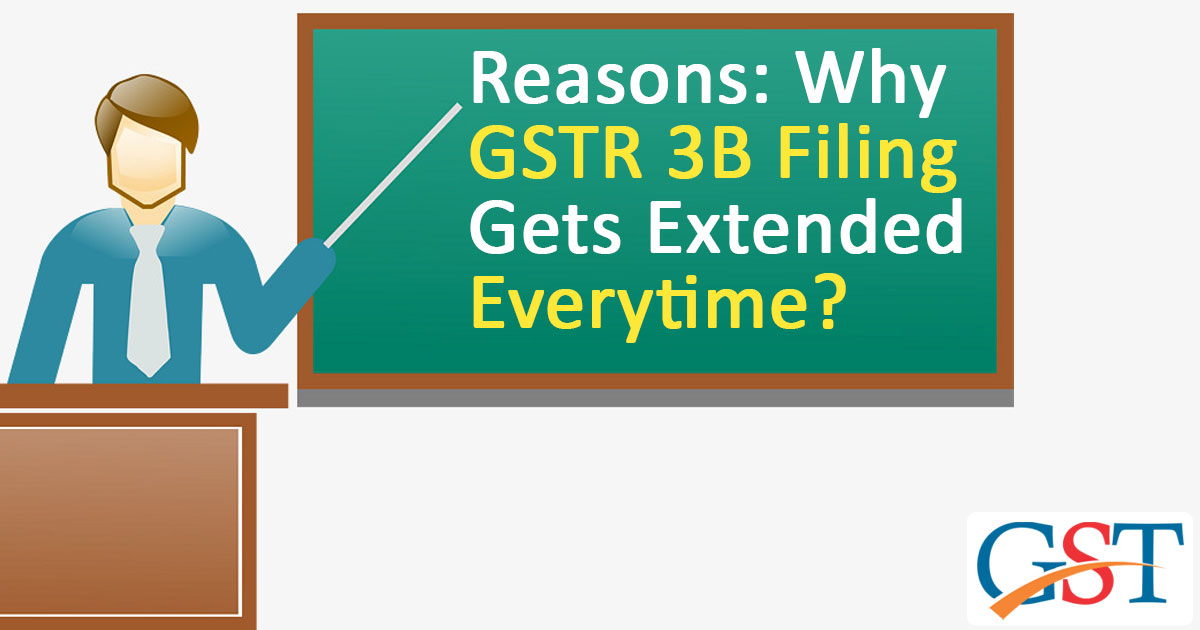The GST was supposed to make Indian Taxation System Good and Simple. But after more than several months down the line, it seems that the new GST regime is marred by technical glitches and operational complexities. All the pre-promises like transparency, clarity etc have fallen flat on their faces. This has left traders, business owners, companies and common taxpayers stranded as well as shocked.
The counter for the routine meetings of the GST Council has reached 37 since 2017. Although the council has tried its level best to tackle taxpayers grievances related to GSTN, tax slabs as well as the e-way bills; the hope for an organized and structured GST system still lingers in the air.
GSTR-3B is an interim solution by the government to ensure a smooth transition for taxpayers from the erstwhile VAT System to the new GST System.
Read Also: Suggestions for the Indian Government Before GST E Way Bill Re-launch
GSTR 3B: Helps You File Returns Easily Until September 2020
An alternative return form for the GSTR-3, the GSTR-3B was introduced to facilitate an easy transition of taxpayers to GST System. It was touted as a temporary measure. It seems, however, it is now the only face saver. It has been extended to September 2020. Taxpayers can now take help of manuals and also research online to learn the procedures for filing this form.
GSTR-3B procedure in a way defies the very essence of GST. GSTR-3B does not involve invoice matching between supplier and purchaser. Both parties can fill the GSTR-3B independent of one another. GSTR-3B eliminates procedural delays and eases the filing process for taxpayers by not attracting late fees and interest. This does not, however, mean that it can put an end to TAX evasions.
Taxpayers must submit the GSTR-3B for the current month and make payments by the 20th of the succeeding month. In order to further propel GST compliances, the government on February 21, 2018, released a simplified version of this form. The new GSTR-3B form has an easy to understand and friendly interface.
Some other changes that one should take note of are as follows:
The taxpayer will now get to know his/her tax liabilities pre-submission as opposed to after the submission.
- Taxpayers can now verify details by downloading the Return Draft.
- No need to manually enter SGST, CGST, and IGST. Once you fill any one of them, Automatic generation is enabled immediately for the remaining two taxes.
For instance, on entering SGST, CGST and IGST will be generated automatically, as applicable.
Filing GST returns – A Slow Work in Progress
A closer look at the Government measures over the last couple of months indicates its efforts to ensure smooth Return Filing operation amidst the GST complexities. GST for the time being still seems a work in progress.
Hence, input and transitional credit are being claimed by taxpayers in the forms GSTR 3B as well as GST TRANS 01 and GST TRANS 02. The irregularities reported by tax authorities in these forms has raised the ears of the GST Council and also the Central Finance Ministry. TRANS 01 and TRANS 02 are used by taxpayers to claim a pending tax credit from the pre-GST system. The GST Council has a tough task at hand and promises to penalize any exaggerated claims made.
However, from October 2017, Taxpayers will need to pay late fees up to Rs 50 per day for delayed filing. In the case of nil returns, delayed returns would attract an additional charge of Rs 20 per day. The maximum possible fine for delayed filing of GSTR-3B is Rs 5,000 plus an additional annual interest of 18% on the taxable amount.










